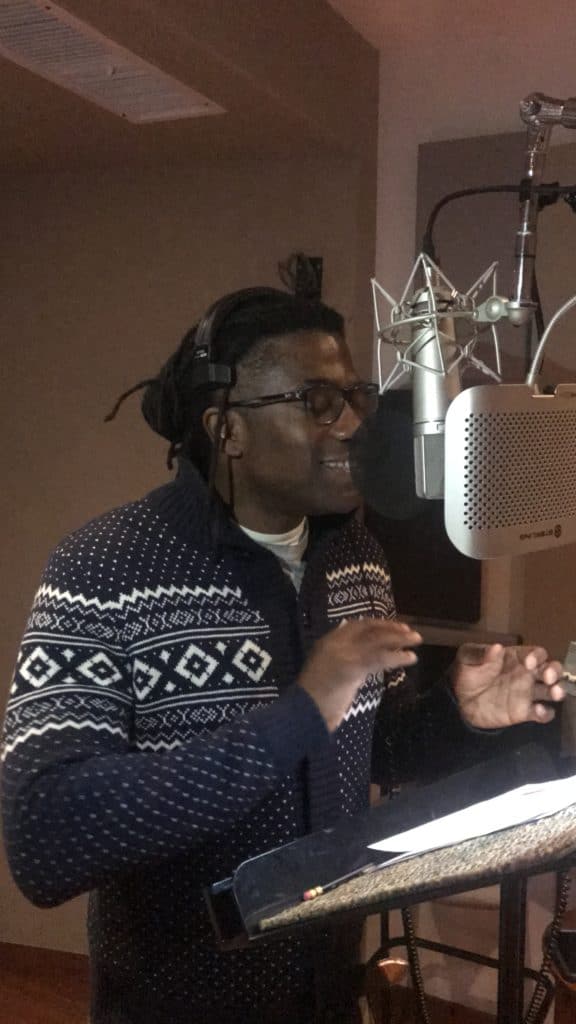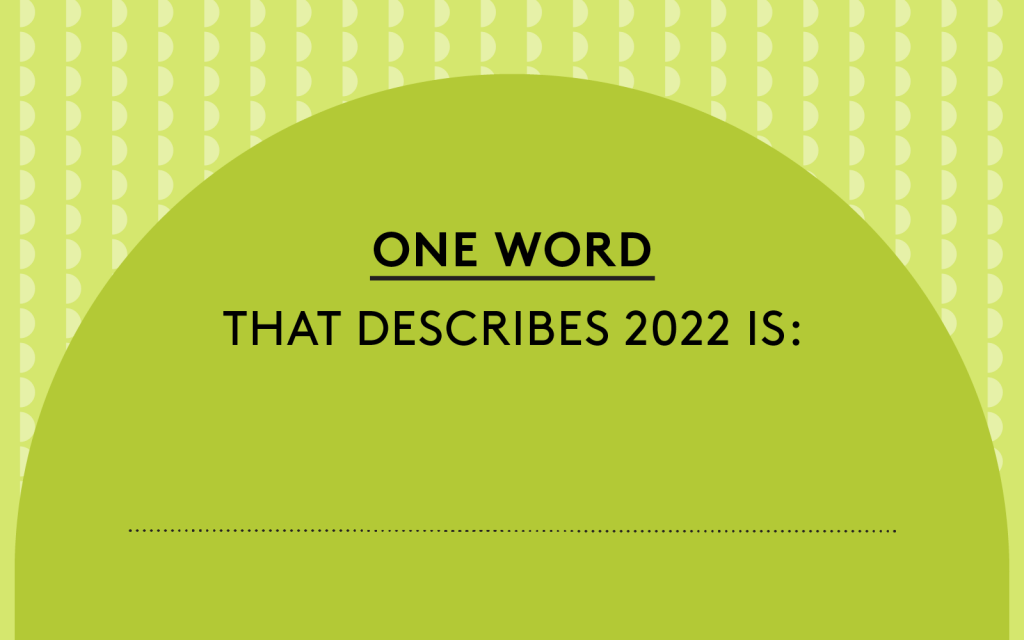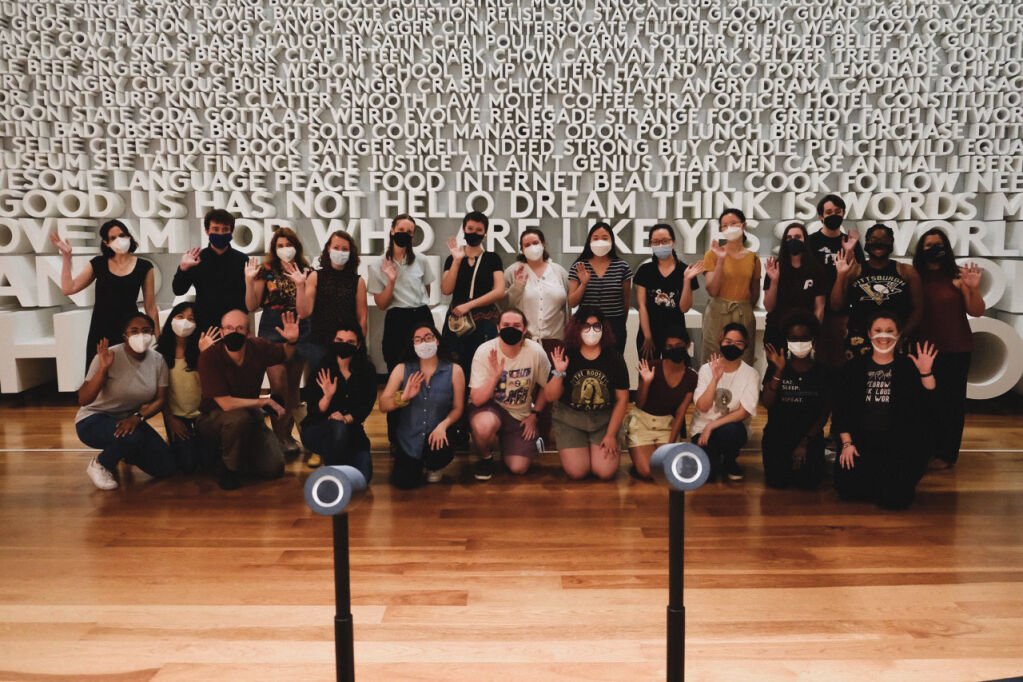Where Do Words Come From? — Gallery Preview!

The word wall’s narrator, Malik Work, recording audio for the experience.
Imagine this: you’re standing in front of a massive wall of a thousand English words. It climbs 20 feet to the ceiling and stretches 40 feet across the room. Along the bottom, commonly-used words stand over two feet tall — and, to, you — but tilt your head ceilingwards and you’ll have to squint to read the tiniest ones way up near the top — anaphora, ephemera, bookworm.
All of a sudden, the wall speaks to you:
“Hey! Is anybody there? Say something into a mic, and we’ll get started.”
So begins your journey through the English language in Where Do Words Come From?, a major gallery on the museum’s third floor. Speak into one of the gallery’s four microphones, and the word wall will respond to your voice. Words are illuminated across the wall to help you answer questions from the gallery’s friendly narrator, and your answers help shape how the fun, fast-moving story unfolds.
Guided by the narrator, you will explore some of the many forces that shaped the English language as it’s used today. As sound and visual effects animate the wall, you’ll discover that English is something of a Franken-language stitched together from many different influences. About 90% of English words come from Germanic languages, French, Latin, or Greek.
The other 10%? Some are from onomatopoeia; some are portmanteau words; and many words were borrowed from other languages like Arabic (hazard, satin, coffee), Spanish (burrito, savvy, canyon), and Italian (pizza, umbrella, baritone). Some words were created, like “selfie,” while other words took on new meanings — thanks in part to the rise of Facebook, we now have “friend” commonly used as a verb, as in “I friended you.”
In this gallery, you’ll take away one of Planet Word’s most important messages: Language is always evolving, and we participate in its evolution every time we speak, sign, text, and write. English itself has been changing for centuries, and it will continue to evolve as long as there are people to speak it. Let this experience show you how much fun the changing story of English can be!


